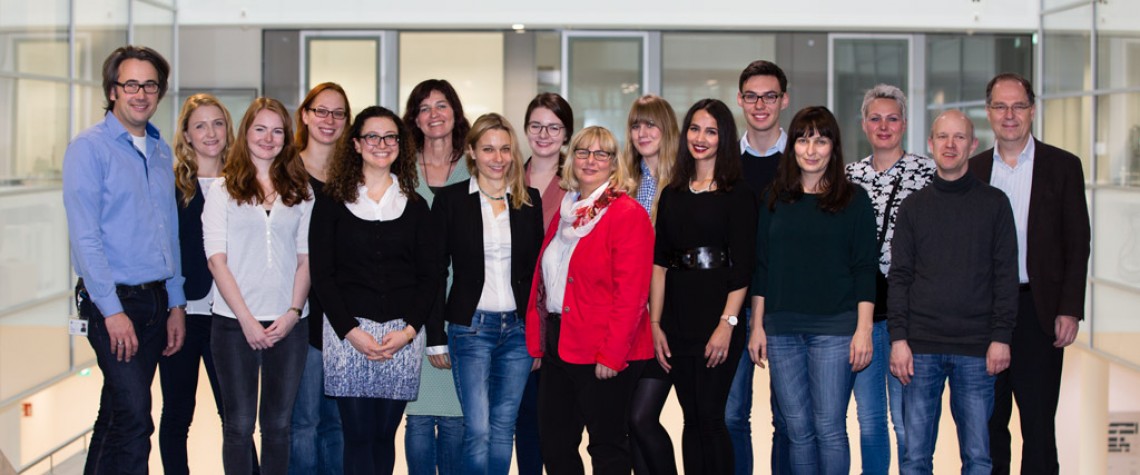Systems Neuroscience

A better understanding of neural characteristics and determinants of physiological movements, motor development and motor control in healthy humans, and delineation of the pathophysiology of movement disorders are the main themes of our group. To this end, we study healthy children and adults, and both paediatric and adult patients with movement disorders of all ages using different methods including psychophysical paradigms, classical experimental neurophysiology, transcranial magnetic stimulation (TMS), electroencephalography (EEG), and structural and functional magnetic resonance imaging (MRI).
In our Gilles da la Tourette syndrome research team we currently focus on inhibitory control, neural correlates of premonitory sensations and echophenomena, and attentional as well as perceptual processes related to tic generation. Different methods are applied in children and adults with uncomplicated and complex Tourette syndrome.
In a series of multi-modal genotype-(endo)phenotype neurophysiology-imaging studies we explore network characteristics in basal ganglia-thalamo-cortical and intracortical circuits in patients with genetically determined parkinsonism and dystonia including PARKIN-, PINK1-parkinsonism, X-linked dystonia parkinsonism (DYT-TAF1) and dopa-responsive dystonia (DYT-GCH 1).
Amongst the group of dystonias, we study motor network abnormalities in different monogenic isolated and combined dystonias. Also, we have a special interest in understanding motor network abnormalities in other rare movement disorders including ataxia, myoclonus and paroxysmal disorders.
We are involved in clinical studies in patients with Tourette syndrome, Huntington disease, multi-system atrophy, spasticity and cerebral palsy.
Our team comprises neurologists, neurophysiologists, psychiatrists, psychologists and a study nurse. We are particularly interested in interdisciplinary research bridging different clinical disciplines, particularly neurology, psychiatry, paediatrics and human genetics, and neuroscience. We offer different research perspectives both for neuroscientists and clinicians to embrace personal preferences and scientific perspectives.
Our group is equipped with a state of the art neurophysiology laboratory including TMS and repetitive TMS, EEG and neuronavigation, and has access to a 3 T MRI scanner.